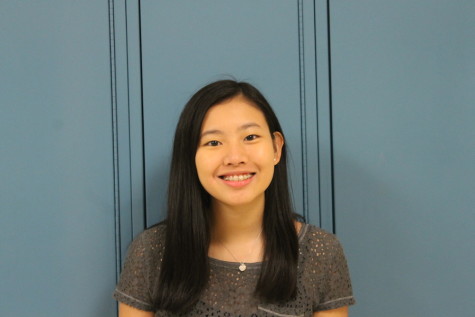Students debate wifi policy
Scrolling through her Facebook news feed during lunch, Emily Flood ’16 came across a picture of Iggy Azalea and Rita Ora dressed in revealing clothing. Intrigued, Flood almost clicked on the link.
Almost.
The knowledge that the school could see what she was viewing stopped her.
Many students forget that when they signed the Westport Public Schools Acceptable Use Policy, they agreed to this loss of privacy. The policy reminds students that their use of the school system’s computers is not private: the district reserves the right to monitor use.
“When using school resources, [people] have no expectation of privacy,” Coleytown middle school librarian John Horrigan said. “It’s like a locker; the administration wouldn’t normally go in it, but they can, and we’re not supposed to put our private resources out using school resources anyway.”
The issue of internet privacy has come into play recently. Supreme Court cases have considered the constitutionality of police seizures of cell phones; the press has also reported that the government has sought and received permission to monitor its own citizens online.
Although students’ cell phones are not being physically searched, the school’s monitoring of mobile devices raises similar questions, some feel. And with the situation involving the notorious app Yik Yak still fresh in the minds of many, the question of whether the school should have the right to monitor devices is more relevant than ever, students said.
Emma Cataldo ’16 said that monitoring is only necessary in situations like Yik Yak; otherwise, students deserve privacy.
“[Tracking] IP addresses is the right thing to do,” Cataldo said. “People shouldn’t get away with things like Yik Yak.” But, she added, “students are people too, and all people deserve privacy.”
According to social studies teacher Rob Rogers, the school usually only monitors use in serious situations, though he said he is unsure what type of situation the administration would consider serious enough for a deeper look at a person’s internet traffic.
“Considering there are thousands of devices on our network, they are not seeing much,” he said. “That would need a team of people to monitor that kind of traffic.”
How often is student internet usage monitored by Westport schools’ technology department? Director of Technology Natalie Carrignan did not respond to emails requesting this information.
Students believe that surveillance is very minimal; this perception leads to mixed opinions.
“The staff doesn’t just sit around all day constantly monitoring us,” Nick Ribolla ’16 said. “Trust me, we aren’t that interesting.”
However, some students were still uncomfortable. Ian Blanchardon ’15 said that the notion that the school is able to see what students do on their computers is “creepy.”
Becky Hoving ’17 said that students would not want the school to see text or Facebook messages, comparing it to a teacher listening in at a lunch table conversation.
“Even if the conversations were not inappropriate or degrading to anyone, it would just be uncomfortable for a teacher to hear your lunch table conversation,” she said. “I think that’s the same as a text or Facebook message.”
Flood agreed, saying that students would not want their browser histories to be monitored, even if they weren’t on bad website.
Others felt that the school had a right to monitor use.
Hoving pointed out that while it can be seen as a violation of privacy, all students signed the Code of Conduct, so the administration has the right to step in.
“There’s a devil and angel side. You’re taking away my rights, but there are certain things that school has the right to do,” Flood said. “It’s a gray area.”

From the time she could talk, Claudia Chen ’16 was always keeping herself busy whether it was scoring points on the tennis court or writing stories and...















































